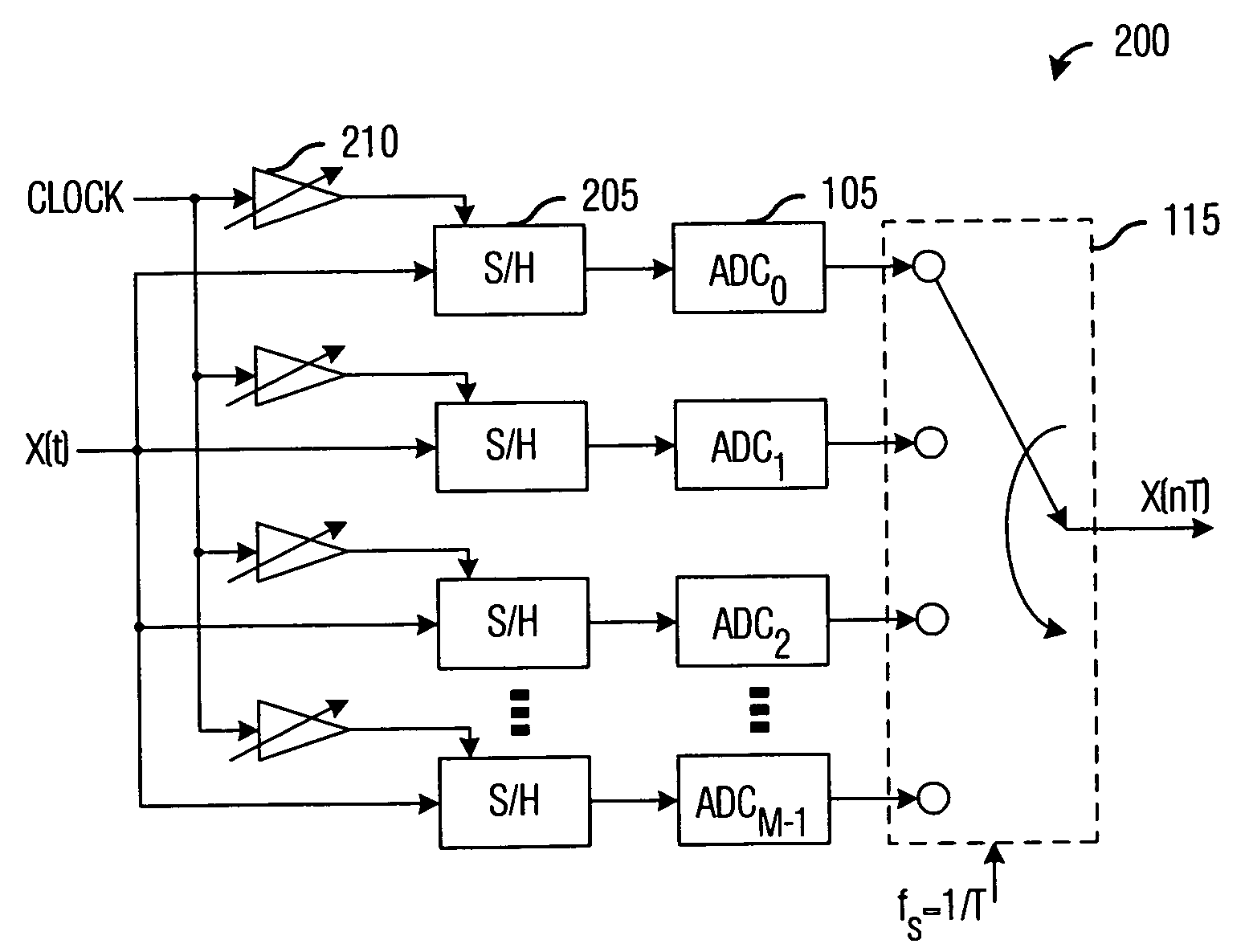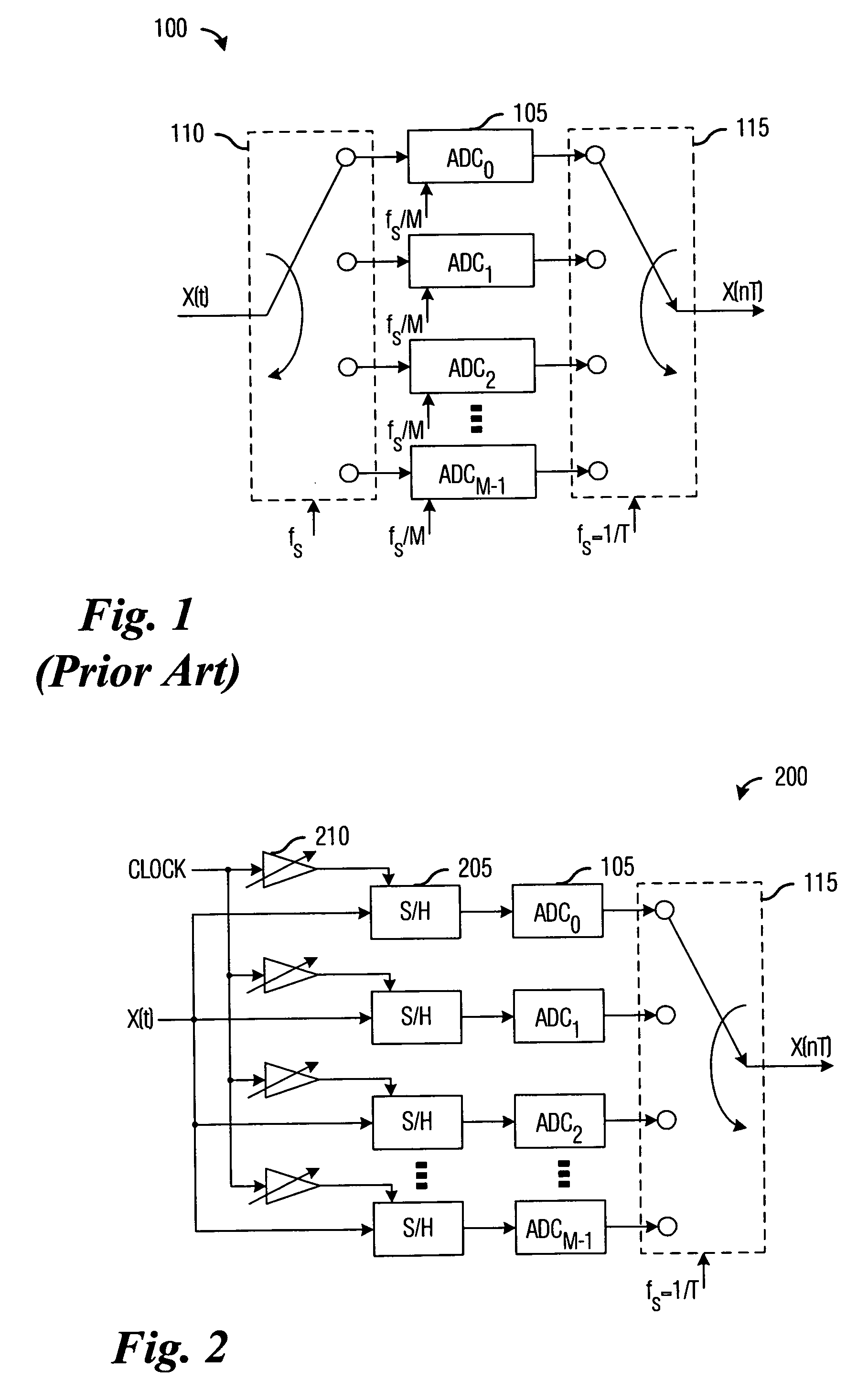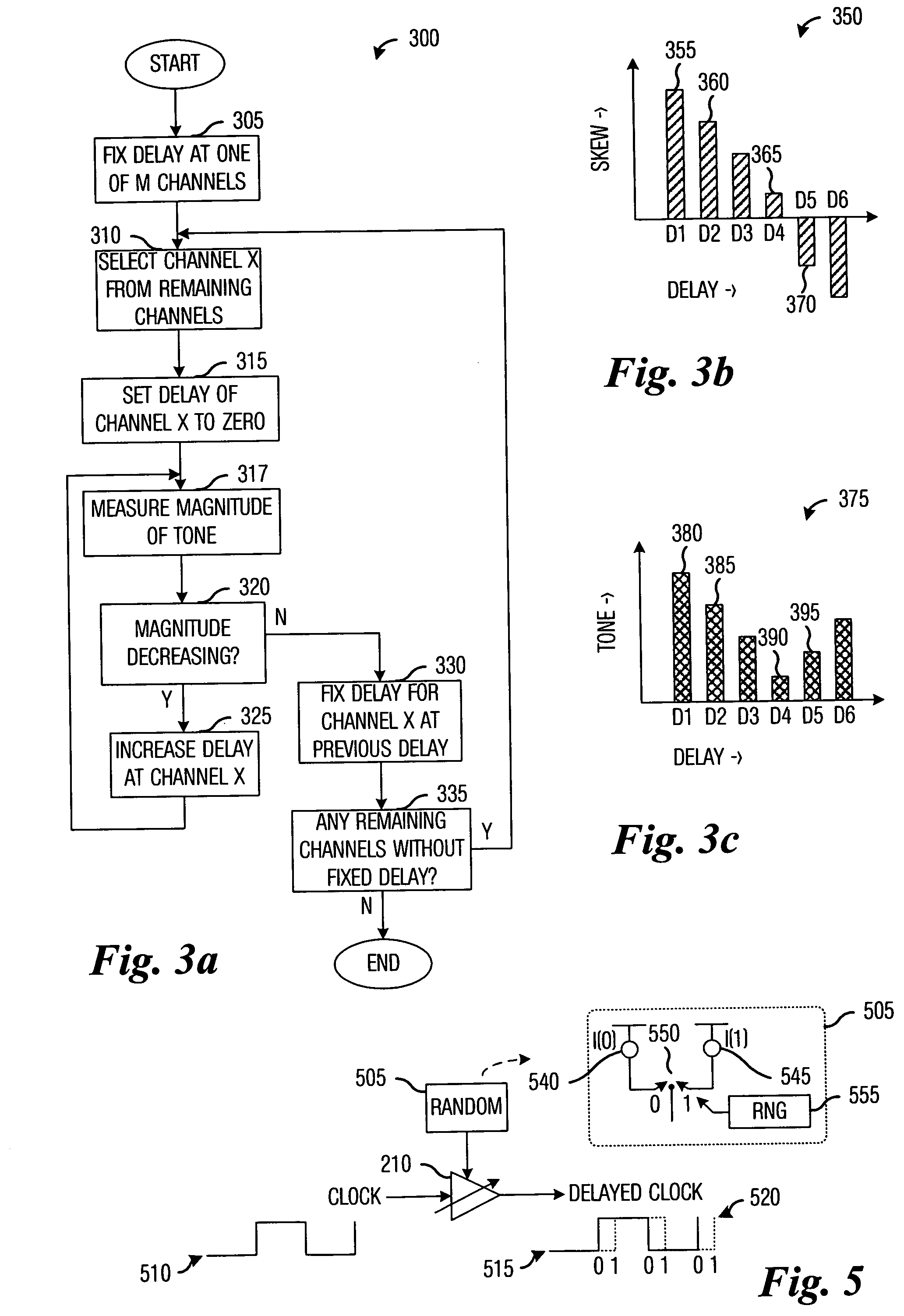System and method for improved time-interleaved analog-to-digital converter arrays
- Summary
- Abstract
- Description
- Claims
- Application Information
AI Technical Summary
Benefits of technology
Problems solved by technology
Method used
Image
Examples
Embodiment Construction
[0030] The making and using of the presently preferred embodiments are discussed in detail below. It should be appreciated, however, that the present invention provides many applicable inventive concepts that can be embodied in a wide variety of specific contexts. The specific embodiments discussed are merely illustrative of specific ways to make and use the invention, and do not limit the scope of the invention.
[0031] The present invention will be described with respect to preferred embodiments in a specific context, namely a TI-ADC array for use in digital television applications. The invention may also be applied, however, to other TI-ADC applications wherein high sampling rates are needed along with high conversion resolution, such as digital video devices, high data-rate communications, and so forth.
[0032] The present invention reduces sampling mismatch distortion in a TI-ADC array by addressing the clock skew component of non-uniform sampling mismatch. By reducing the contri...
PUM
 Login to View More
Login to View More Abstract
Description
Claims
Application Information
 Login to View More
Login to View More - R&D
- Intellectual Property
- Life Sciences
- Materials
- Tech Scout
- Unparalleled Data Quality
- Higher Quality Content
- 60% Fewer Hallucinations
Browse by: Latest US Patents, China's latest patents, Technical Efficacy Thesaurus, Application Domain, Technology Topic, Popular Technical Reports.
© 2025 PatSnap. All rights reserved.Legal|Privacy policy|Modern Slavery Act Transparency Statement|Sitemap|About US| Contact US: help@patsnap.com



